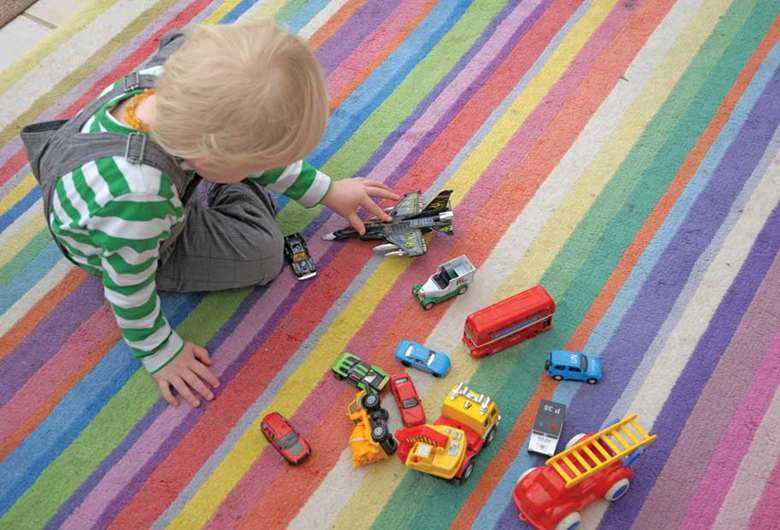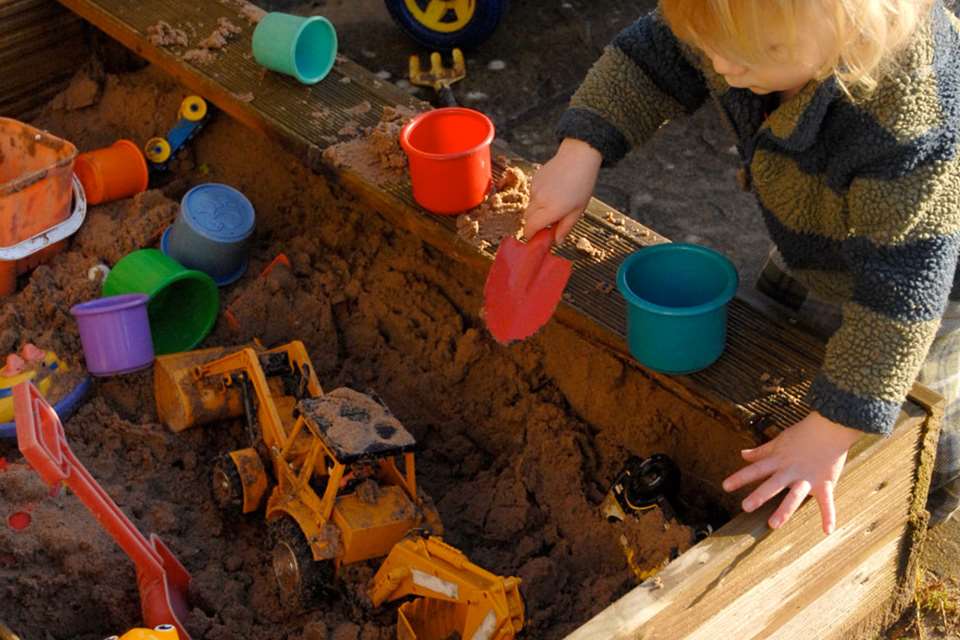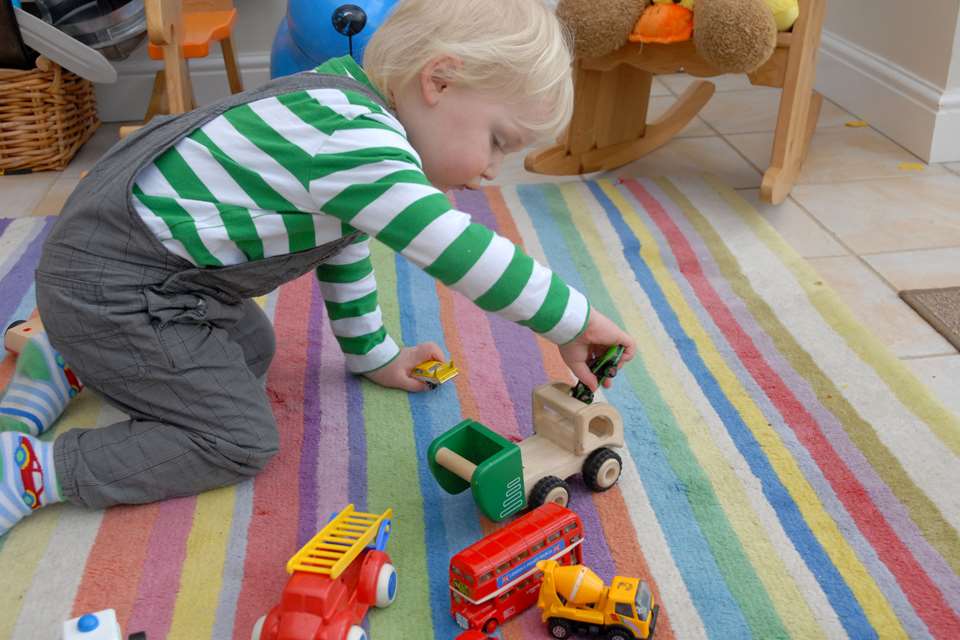Experts call for expansion to slow on twos offer
Monday, January 27, 2014
Last week's appeal by leading early years experts to delay the expansion of the two-year-old programme was viewed by many in the sector as a timely wake-up call.

While there were some dissenters, many sector organisations backed the report's recommendations for the Government to focus on raising standards of provision for two-year-olds through investing in workforce development and pay before expanding the programme further.
The Sound Foundations report, commissioned by the Sutton Trust and carried out by a team from Oxford University led by Sandra Mathers, concludes that the Government must slow expansion because good-quality provision is not available for all the 92,000 two-year-olds already using the free early education places.
It says that for the two-year-old programme to be successful in narrowing the gap between disadvantaged children and their better-off peers, the quality of care is critical.
The report is based on a literature review of international research on the quality of early childhood education and care for children under three, including a comparison of current policy and practice against the research evidence.
In an interview with Nursery World, the report's lead author Sandra Mathers said, 'The first thing to say is that we are very supportive of the Government's two-year-old programme and we are very clear about this in the report. It is based on sound research evidence that starting nursery before three can give children from low-income families an extra boost, so the programme has huge potential to narrow the gap between the most and the least well off children.
'But the evaluation of the pilot programme showed that the free places will only make a difference to children's language development if they are of high quality. Although there is a lot of really good-quality provision out there, we think that the current policy and quality framework does not fully support settings to offer what these children need. We have recommended improvements to qualifications and pay, and also to the Ofsted inspection framework.'
Ofsted figures show that around a quarter of settings are graded as less than good, and that one third of local authorities think they will not be ready to provide places for 40 per cent of two-year-olds by September 2014.
'We are concerned that if there is a shortage, too many settings graded as satisfactory or requires improvement will need to be used to reach the targets. That is why we have recommended that the roll-out of the two-year-old programme is delayed, so that funding can be channelled into improving pay and qualifications before extending to more twos.'
Quality
The report looks at how quality can be achieved for under-threes, with recommendations on the Government's plans for free early education for two-year-olds.
Quality is examined more broadly than Ofsted grades, taking in qualifications and staffing in early years settings and the kinds of physical environments and organisation of staffing that support quality.
The report identifies five key conditions of quality:
- knowledgeable and capable practitioners, supported by strong leaders
- a stable staff team with a low turnover
- effective staff deployment (eg favourable ratios, staff continuity). It recommends an overall ratio of 1:4 for group care and 1:3 for childminders
- secure yet stimulating physical environments
- engaged and involved families.
The researchers then compare current policy against the research evidence to make their recommendations.
Ms Mathers said, 'Taking it a bit more slowly would allow criteria to be tightened, so only good or outstanding settings could offer places.
'Ofsted says quality is lower in disadvantaged areas, which means that ironically the children that most need quality are the least likely to experience it.'
She added, 'It's hard to recruit good-quality staff and retain them. Two-year-olds need close relationships with staff and it's difficult with a high turnover.'
Environment
Space is particularly important for younger children, for their routine care needs, their physical development and their learning, the report says.
'Environments also need a feeling of calm and intimacy, as large, noisy spaces can be overwhelming for twos.
'We don't make any judgement in the report about whether schools are appropriate environments for twos. The research evidence shows that schools can provide high quality for older children, because they have better qualified staff, 'Ms Mathers said.
'But what we are saying is that settings which have not catered for two-year-olds before will need to pay careful attention to their environment for twos, because they have very different needs to those of older children. We're recommending there should be guidance and checks with minimum requirements for settings as a condition of eligibility. It's important to make sure group sizes are not too big.
'Disadvantaged children are more likely to have additional needs, so they are more sensitive to environmental stress.'
On childminder qualifications
'The latest early years providers surveys show that about 80 per cent of group settings have staff qualified to Level 3 and above, but only 59 per cent of childminders. We felt really strongly that there should be the same expectation for qualification levels as nursery staff to support children's development. That's why we recommended a baseline of Level 3 for all those working with funded two-year-olds.'
On the importance of a social mix
'We have heard anecdotally that some settings are providing separate rooms for funded children, whereas in fact the research evidence is very clear that a mixed group is much more supportive for children from low-income families.'
On Ofsted
'The needs of children under three are unique and different. Ofsted has been making improvements in the way that it assesses quality for younger children. Recent inspection reports are much more explicit about how well settings support under-threes. But we want Ofsted to go further, which is why we're recommending a separate grade that reflects how well settings meet the needs of under-threes.
'There used to be a separate grade for the EYFS in schools, but since it has been removed it is not possible to tell how good schools are at providing high-quality early years provision. This should be reinstated.
'A separate grade reflecting the quality for under-threes would help parents to choose a setting, and have the reassurance of knowing that the setting provides quality for this age range.
'This would also help local authorities. The Ofsted grade is now the only way of deciding to fund settings for twos and this would support them to make good decisions about funding.'
THE REPORT'S KEY RECOMMENDATIONS
- Delay the roll-out of the two-year-old programme to 40 per cent of twos (planned for September 2014) until the Government can guarantee good quality provision for all.
- Require all staff working with funded two-year-olds to be qualified to at least Level 3 (A-Level) and have support from a graduate practitioner.
- Ensure that all practitioners (including childminders) can access qualifications and ongoing professional development, which adequately prepares them to meet the needs of disadvantaged two-year-olds and their families
- Create a workforce development fund, similar to the Graduate Leader Fund, to enable delivery of the training and qualifications outlined above.
- Improve pay to reflect improved qualifications.








